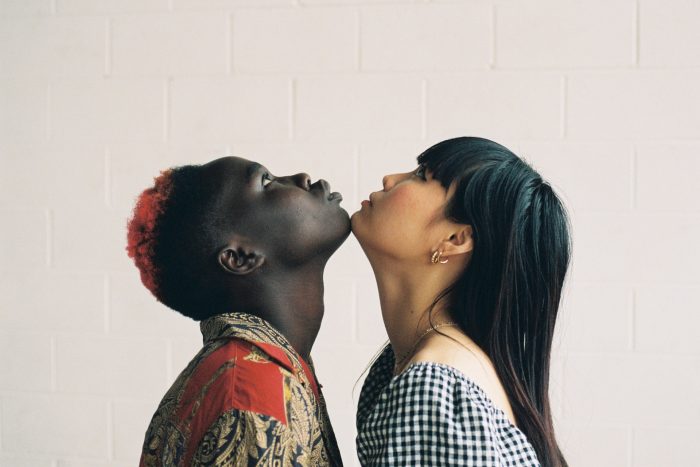Relationships should be easy—and many are.
This does not mean that they are void of conflict or disagreement. It does not mean that they are always filled with flowers and romance.
And no matter how many times we think it must be fate or destiny or meant to be, the reality is that often relationships work because we make them work.
We address the conflict head-on to arrive at a resolution. We find a middle ground when we disagree. We bring some flowers if that is important to our partner—or pluck a dandelion from the side of the road if finances are tight. And we make romance through acts of love, which can be as simple as dancing in the kitchen or taking a walk in the fresh air, holding hands.
Most importantly, we never lose sight of the fact that we are on the same team. We argue with tenderness because we love that person, no matter how mad we are. We process their viewpoint because our compassion must allow for that, no matter how vehemently we disagree. And we never hit below the belt with words that will wound and leave scars long after the healing is done.
We all know that there are times when that just doesn’t happen, no matter how hard we try. We lose control, we take a jab, and strike right where it will hurt the most, injuring the one person we don’t want to hurt or fight with in our attempt to find some middle ground. We are fighting to strengthen the relationship, right? Not to end it or cause irreparable damage.
I truly believe that two people who want to be together will find a way to work through their differences and build a relationship that will stand the test of time.
But what happens when the discord has become frequent, when tension seems to hover in the air like a horde of gnats that just won’t go away? What happens when you stop liking the person, even though you’ll always love them? What happens when the resentments and disappointments pile so high that you can no longer see past them to find a reason—any reason—to keep trying?
And how do you leave when the reality is—it is just not good enough? It’s not bad, but it’s not good. You have grown indifferent toward a relationship that you once harbored such passion and desire for. A relationship that once meant the world to you.
Fast forward through the accumulated hurts, separations, and recurring issues that remain an elephant in the room.
Suddenly, light dawns. Reality sets in. Denial walks out the door.
You find yourself gifted with the opportunity to emotionally distance yourself and see clearly that your relationship is like a first date that’s lasted for years with glimpses of partnership and shaky commitment, yet lacks the intimacy and friendship you once thought you had—and need.
How do you know when it’s time to say goodbye, really say goodbye, and move on without regret? To sincerely cut the ties, even if you can see yourself being friends with the person down the line, just not right now when the pain and exhaustion are acute?
And how do you leave when the other person continues to hang on because good enough is good enough for him (or her) but not for you?
There are many articles that explore healthy love versus toxic relationships. They dive into attachment that is often mistaken for love and codependency, which is rooted in need and results in stagnancy or fear of being alone versus interdependency that affords growth and change for the partners within the relationship.
Relationships are raw, messy, and complex. They are filled with ups and downs, good times and not so good times, as well as many bumps in the road and unintentional slights and hurts.
We’ve read and studied it all.
I wish that I had the answers for you. I wish that I could tell you that I’ve mastered Relationships 101 and achieved expert level status. I wish that I could hand you the key to unlock a grand plan that will put an end to all toxic cycles and provide you with the road map to a fairy-tale partnership.
But I can’t. There is no fairy tale. There is no magical spell or master plan. There are two people who can either make it work, or not.
What I can offer you are some points to consider, lessons learned, and what I’d like to think of as wisdom gained from my experiences. And at the end of today, I see clearly that my repeat mistakes all come down to me—no one else but me.
These are not tips to snag a man or lady, but rather a guide to help you look inside yourselves and explore what you want and need from a partner—then not settle for a relationship that’s just good enough.
Values, beliefs, and morals
These are critical components that will determine the long-term success of your relationship. We may have friends or acquaintances with a vastly different if not totally opposing set of values, beliefs, and morals and that is what colors our world and makes for fascinating discussions.
But when it comes to a life partner, you should have these in common. It doesn’t matter if you are of a different race, ethnicity, religious, or political background. What matters is that you share the strength in your convictions and support each other.
If family is important to you and not the other person, you may not be a fit. If you are kind to others and the other person is nasty, you may not be a fit. If you practice gratitude in your daily life and the other person practices negativity and vengeance, you may not be a fit.
And if a long-term commitment to each other is important to you and the other person takes it one day at a time, you may not be a fit.
In the beginning, all of the above may seem acceptable, but if you’re honest with yourself, as I have been, you’ll recognize your inner fixer, hopeless romantic, and the toxic habit of believing that love can overcome all.
Sometimes, love just isn’t enough. We are not in a Hallmark movie. This is the real world and we have one life to live. Live and love with authenticity and honesty. Otherwise, it is not fair to either partner and you risk an endless rollercoaster ride filled with drama and discord.
Love styles
I am not talking about the book or the scientific research done on this. I am approaching this from a quite elementary and personal level.
If you need a daily sense of connection and your partner doesn’t, you may not be a fit. If simple acts of thoughtfulness are important to you and he (or she) thinks taking out your trash is sufficient, you may not be a fit. If relationship rituals or a date night is important to you and your partner only wants to sit on the couch, you may not be a fit.
Ask yourself what’s important to you in a partner. What do you need to feel loved, accepted, and most importantly, secure. And if you’ve stated what you need and it’s continually disregarded, it may be time to move on.
Love is an action, not a word.
Common interests
This is something I have hugely disregarded and considered unimportant in my relationships.
Who cares if he likes to run and you like to walk? Who cares if he doesn’t read and you are a bibliophile? Why does it matter if she takes interest in the moon and the stars and he takes interest in nothing that surrounds him?
Big mistake.
It is perfectly acceptable to have different hobbies and can actually add flavor to your relationship. But when you share nothing in common—absolutely nothing, combined with conflicting values, beliefs, and morals—your relationship will not flourish. As a matter of fact, I believe it is doomed to fail.
As we mature, we recognize that we want a companion, a friend, and partner to share and celebrate life with.
I had set out to meet just that a long time ago. I’d spent years alone and loved my solitude (always will), but I questioned how much of my alone time was desire and how much was the result of not wanting to endure another disappointment. I didn’t have the energy, time, or desire.
It was an activity partner I wanted to meet. Someone to dine out with and step out to hear some live music or take day trips. I was a recovering workaholic in need of a partner in crime.
Then I fell in love—with a person who was none of the above, and eventually, the relationship unraveled like the threads of an old, but loved, sweater that finally needs to be carefully and sadly discarded. You’d held on to it for years because you just couldn’t part with it, thought it would hold up, but the time had come.
How do want to spend your time? What would you like to do with your best friend? You won’t always want to do the same things, but there should be some common interests—even if it’s ending the day sitting on a deck with a beverage while discussing current events and gazing at the moon and stars.
I can guarantee, as small as that may sound, if one of you lives for that and the other doesn’t, you’ll wind up feeling empty and alone.
Better to be alone than in the wrong company with someone who makes you feel alone.
Relationship goals
So you think you’ve found your partner, that person you want to grow young with as the years pass.
What does your future look like? What do you want from the relationship?
For some, it is marriage. For some, it is living together. And for others, like me, it is as simple as trusting that you have a solid partner who will be there with you for better or worse, no marriage or cohabitation required.
Of course, none of us know what tomorrow may bring and that is acceptable when it comes to freak accidents, illness, or other life tragedies that are unforeseen.
But if your partner doesn’t look long term and you are a loyalist who wants commitment, no matter what tomorrow will bring, take those boots and start your walking.
Consistency, stability and security—a solid relationship should provide this. There will be trials and tribulations, but both parties have to want to survive this. If one person views your lives as separate while the other views your lives as shared together despite where you live or what your jobs are—keep on walking.
If a relationship doesn’t meet your needs and you’ve repeatedly tried while the other person has failed to follow through or make any effort, you need to move on. Maybe that person wants to stay connected, especially when you’re a tireless giver who struggles in turning your back on others, but you must.
You deserve the love you give so freely. Don’t let someone take advantage of that. Have the self-respect and dignity to walk away.
There is a difference between giving up and knowing when to walk away.
To quote a tea bag message that has always stuck with me: “Love is friendship on fire.”
Healthy relationships aren’t necessarily natural for some, but they can be built.
When you let go of what actually isn’t, you will make room for what could be.
~


 Share on bsky
Share on bsky





Read 29 comments and reply